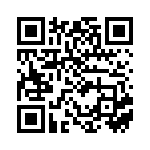For seizures.
Brand Name(s): Diastat
Generic Name: Diazepam Rectal
Instructions
This medicine is for use in the rectum. DO NOT take this medicine by mouth.
Use the applicator that is supplied with this medicine to insert the medicine into the anus.
Ask your doctor, nurse or pharmacist to show you how to use this medicine correctly.
Do not use this medicine to treat more than 1 seizure episode within 5 days. Do not use for more than 5 episodes in a month.
Keep the medicine at room temperature. Avoid heat and direct light.
This medicine should only be used by a person who has been trained to recognize when and how it should be used.
Follow package instructions exactly to prepare the medicine and applicator for use.
Inspect the applicator (syringe) tip carefully. Do not use if cracked or broken.
Drug interactions can change how medicines work or increase risk for side effects. Tell your health care providers about all medicines taken. Include prescription and over-the-counter medicines, vitamins, and herbal medicines. Speak with your doctor or pharmacist before starting or stopping any medicine.
If possible, avoid using with alcohol, marijuana, or other medicines that can cause dizziness or drowsiness. These include allergy/cold products, muscle relaxers, sleep aids, and pain relievers.
Tell your doctor if symptoms do not get better or if they get worse.
Check the medicine once a month, and replace it before it expires.
Cautions
It is very important that you always have this medicine with you in case you need to use it. DO NOT leave it at home.
Though it helps many people, this medicine may sometimes cause addiction, especially if it is used for a long time. This risk for addiction may be higher if you have a substance use disorder - such as overuse of or addiction to drugs or alcohol. Speak with your doctor about the benefits and risks of using this medicine.
If you stop this medicine suddenly, after using it regularly for a long time, you may have withdrawal symptoms. Your doctor may ask you to slowly reduce your dose before stopping it. Tell your doctor right away if you notice any symptoms of withdrawal. Withdrawal symptoms can include headaches, restlessness, hallucinations, confusion, depression, nausea, or seizures.
Tell your doctor and pharmacist if you ever had an allergic reaction to a medicine.
Some patients taking this medicine have experienced serious side effects. Please speak with your doctor to understand the risks and benefits associated with this medicine.
Do not use the medication any more than instructed.
Your ability to stay alert or to react quickly may be impaired by this medicine. Do not drive or operate machinery until you know how this medicine will affect you.
This medicine passes into breast milk. Ask your doctor before breastfeeding.
This medicine can hurt a new baby in the womb. If you become pregnant while on this medicine, tell your doctor immediately. Your doctor may switch you to a different medicine.
Use medicine with caution if you have breathing problems. Get help right away for slow or shallow breathing.
Always carry an ID card or wear a medical alert bracelet indicating your medical condition.
Do not share this medicine with anyone who has not been prescribed this medicine.
Side Effects
The following is a list of some common side effects from this medicine. Please speak with your doctor about what you should do if you experience these or other side effects.
- loss of balance
- burning or stinging
- dizziness or drowsiness
Call your doctor or get medical help right away if you notice any of these more serious side effects:
- agitated feeling or trouble sleeping
- decreased awareness or responsiveness
- shallow, irregular breathing
- confusion
- hallucinations (unusual thoughts, seeing or hearing things that are not real)
- mood changes
- difficulty speaking
A few people may have an allergic reaction to this medicine. Symptoms can include difficulty breathing, skin rash, itching, swelling, or severe dizziness. If you notice any of these symptoms, seek medical help quickly.
Please speak with your doctor, nurse, or pharmacist if you have any questions about this medicine.
IMPORTANT NOTE: This document tells you briefly how to take your medicine, but it does not tell you all there is to know about it. Your doctor or pharmacist may give you other documents about your medicine. Please talk to them if you have any questions. Always follow their advice.
There is a more complete description of this medicine available in English. Scan this code on your smartphone or tablet or use the web address below. You can also ask your pharmacist for a printout. If you have any questions, please ask your pharmacist.
The display and use of this drug information is subject to Terms of Use.
More information about DIAZEPAM - RECTAL

Copyright(c) 2024 First Databank, Inc.
Selected from data included with permission and copyright by First DataBank, Inc. This copyrighted material has been downloaded from a licensed data provider and is not for distribution, except as may be authorized by the applicable terms of use.
Conditions of Use: The information in this database is intended to supplement, not substitute for the expertise and judgment of healthcare professionals. The information is not intended to cover all possible uses, directions, precautions, drug interactions or adverse effects nor should it be construed to indicate that use of a particular drug is safe, appropriate or effective for you or anyone else. A healthcare professional should be consulted before taking any drug, changing any diet or commencing or discontinuing any course of treatment. The display and use of this drug information is subject to express Terms of Use.



